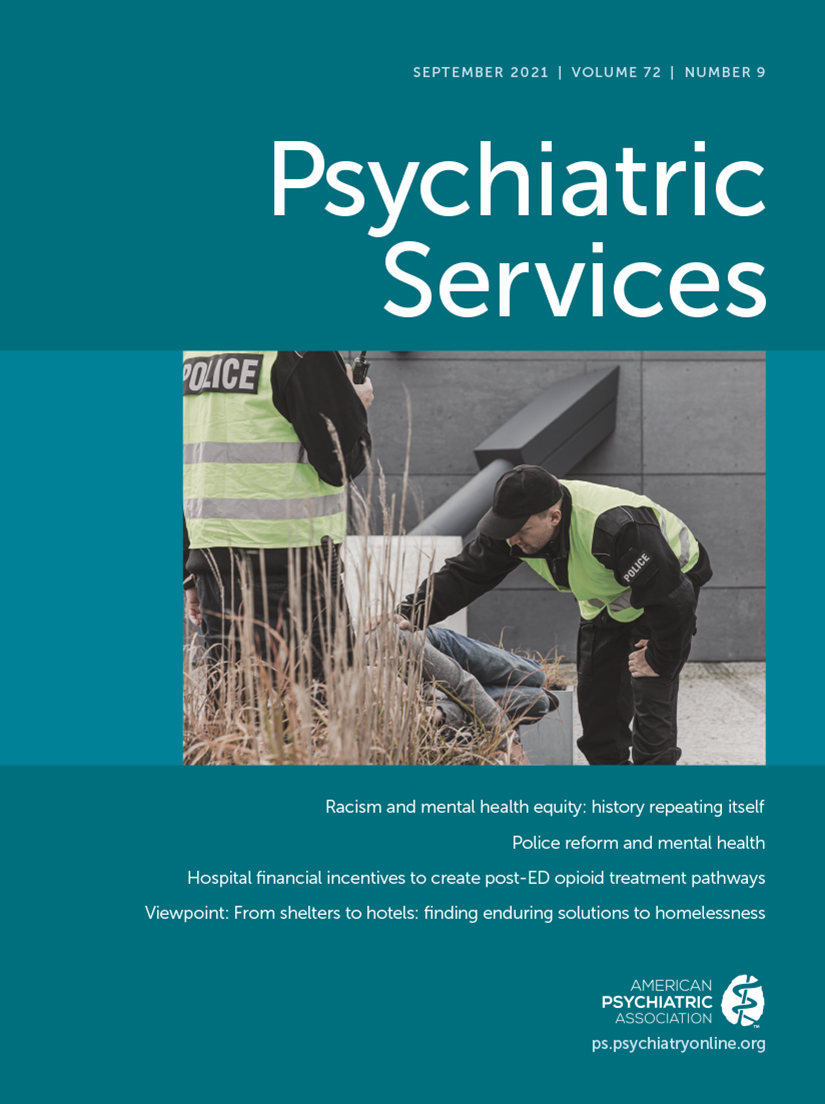The Stigma of Addiction
This Editor’s Choice collection was published online in July 2021. To review all collections, please visit the Editor’s Choice section of ps.psychiatryonline.org.
Stigma toward addiction is pervasive in the general public and within health care systems. Although effective treatments are available for substance use disorders, most individuals with these disorders do not receive treatment and frequently encounter stigma as a barrier to accessing and engaging in care. Moreover, these treatment rates have not changed significantly over the past decade despite further development of pharmacotherapies, increased federal funding support (primarily driven by the opioid epidemic), and other efforts and policy changes aimed at expanding treatments. With steady increases in overdose deaths in the United States over the past 20 years, the need to further reduce barriers to care for individuals with substance use disorders is urgent to ensure equal access to treatment across geography, race, ethnicity, and socioeconomic status.
This collection highlights current research efforts, which have focused on developing interventions to reduce stigma and increase treatment engagement for individuals with substance use disorders. The articles include surveys of attitudes toward individuals with these disorders, interventions to reduce stigma, policy affecting stigma toward substance use disorders, and disparities in service utilization. New research and opinion pieces are encouraged that explore the stigmatization of addiction and evidence-based interventions to reduce stigma.
Attitudes toward and treatment of individuals with substance use disorders
Stigma, Discrimination, Treatment Effectiveness, and Policy: Public Views About Drug Addiction and Mental Illness
Barry CL, McGinty EE, Pescosolido BA, et al.
Psychiatr Serv 2014; 65:1269–1272
https://doi.org/10.1176/appi.ps.201400140
Rural-Urban Differences in Physician Bias Toward Patients With Opioid Use Disorder
Franz B, Dhanani LY, Miller WC
Psychiatr Serv 2021; 72:874–879
https://doi.org/10.1176/appi.ps.202000529
Correlates of Patient-Centered Care Practices at U.S. Substance Use Disorder Clinics
Park S, Grogan CM, Mosley JE, et al.
Psychiatr Serv 2019; 71:35–42
https://doi.org/10.1176/appi.ps.201900121
Social Stigma Toward Persons With Prescription Opioid Use Disorder: Associations With Public Support for Punitive and Public Health–Oriented Policies
Kennedy-Hendricks A, Barry CL, Gollust SE, et al.
Psychiatr Serv 2017; 68:462–469
https://doi.org/10.1176/appi.ps.201600056
A Research Agenda to Advance the Coordination of Care for General Medical and Substance Use Disorders
Quinn AE, Rubinsky AD, Fernandez AC, et al.
Psychiatr Serv 2017; 68:400–404
https://doi.org/10.1176/appi.ps.201600070
Perceived Barriers to Treatment for Alcohol Problems: A Latent Class Analysis
Schuler MS, Puttaiah S, Mojtabai R, et al.
Psychiatr Serv 2015; 66:1221–1228
https://doi.org/10.1176/appi.ps.201400160
Racial disparities and stigma among individuals with substance use disorders
Racial and Ethnic Differences in Substance Abuse Service Needs, Utilization, and Outcomes in California
Niv N, Pham R, Hser Y-I
Psychiatr Serv 2009; 60:1350–1356
https://doi.org/10.1176/ps.2009.60.10.1350
Interventions to reduce stigma toward individuals with substance use disorders
“Recovery Speaks”: A Photovoice Intervention to Reduce Stigma Among Primary Care Providers
Flanagan EH, Buck T, Gamble A, et al.
Psychiatr Serv 2016; 67:566–569
https://doi.org/10.1176/appi.ps.201500049
Communication Strategies to Counter Stigma and Improve Mental Illness and Substance Use Disorder Policy
McGinty E, Pescosolido B, Kennedy-Hendricks A, et al.
Psychiatr Serv 2018; 69:136–146
https://doi.org/10.1176/appi.ps.201700076
Peer- and Mentor-Enhanced Web-Based Training on Substance Use Disorders: A Promising Approach in Low-Resource Settings
Clair V, Rossa-Roccor V, Mokaya AG, et al.
Psychiatr Serv 2019; 70:1068–1071
https://doi.org/10.1176/appi.ps.201900201
Policy affecting stigma of having substance use disorders
Responding to the Opioid Crisis: Lessons From a Review of Casualties
Campbell ANC, Williams AR, Nunes EV
Psychiatr Serv 2019; 70:89
https://doi.org/10.1176/appi.ps.70202
Private Coverage of Methadone in Outpatient Treatment Programs
Polsky D, Arsenault S, Azocar F
Psychiatr Serv 2020; 71:303–306
https://doi.org/10.1176/appi.ps.201900373
A State Financial Incentive Policy to Improve Emergency Department Treatment for Opioid Use Disorder: A Qualitative Study
Kilaru AS, Lubitz SF, Davis J, et al.
Epub ahead of print, May 17, 2021



